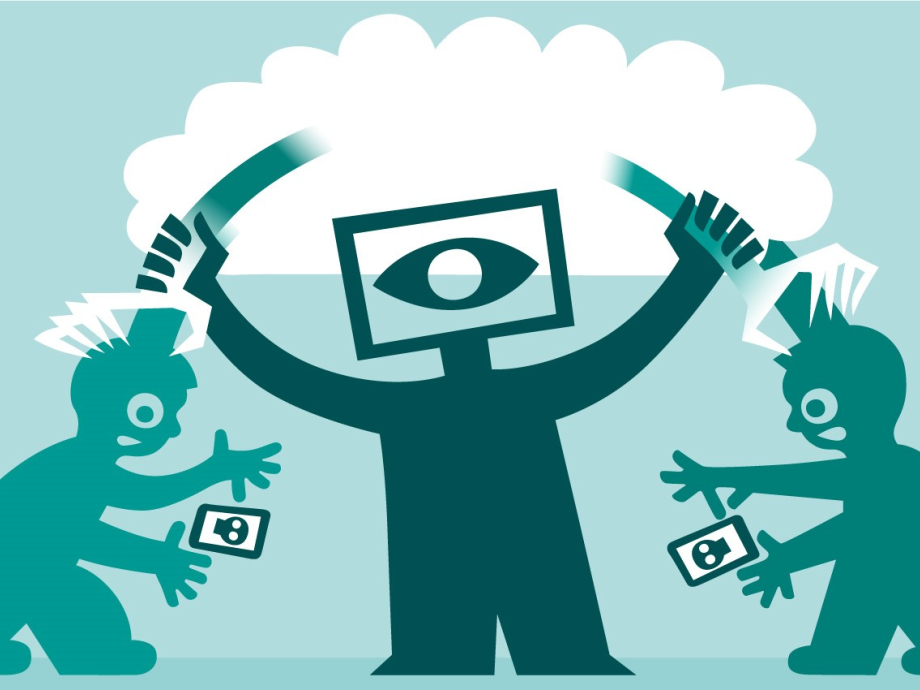Youth & Media Bureau: We need leadership to battle cyberbullying
Strong leaders in the classroom can help children in the battle against cyberbullying, writes Justine Pardoen of the Dutch Youth & Media Bureau.

By Justine Pardoen, Founder of the Youth & Media Bureau / Parents Online
Reading time: 2-3 minutes | Be sure to read the other articles in the Decent Digitisation series.
Children get bullied most between the ages of 10 and 15. That’s when they slowly become more independent in their thinking, but they can also get caught up in group dynamics. Teasing – bullying – is part of growing up. And however optimistic parents and teachers may be, it really does happen everywhere –even online, for example when children send each other mean texts in group messaging apps or share photos that make other children look foolish.
Cyberbullying may be a natural part of growing up then, but it can be very painful for children and damage them for life. Bullying is ubiquitous and we must always try to stop it. Teachers play a crucial role in this.
That’s because their work gives them the best vantage point for seeing how children treat each other in a group. They have the children in their classroom and see them make friends and exclude others. Parents often do not have that overview. Teachers should therefore assume the role of leader and point the group in the right direction. They should not merely coach pupils by offering occasional advice; they must be strong women and men who set boundaries –and not only during school hours, but beyond as well.
Fear has us at a disadvantage
After all, it’s precisely outside of school hours that things tend to go wrong. There are teachers who say ‘I’ve got a private life too. Parents are responsible for what happens beyond the school gates.’ But teachers cannot simply withdraw from the group process. They must remain available to children and engage in continuous dialogue with them. That is the best medicine against bullying.
Antibullying legislation and resilience training can never replace genuine personal engagement. In fact, governments, experts, parents and teachers all have a tendency to hide behind the rules, methods and advice. Fear has us at a disadvantage: the fear of actually engaging in dialogue with youngsters, and the fear of giving teachers the opportunity to do so.
Use new technology in the teacher-pupil relationship
Those teachers who remain engaged after school and, for example, spend an hour in the evening texting with their pupils about homework are often reprimanded. The Education Inspectorate warns teachers not to get too chummy with their pupils. In fact, teachers can improve their teacher-pupil relationships precisely by using the new technology.
Get a second phone if you don’t want pupils to text you privately
Go ahead and tell your pupils that they can always text you if they really need to, 24/7. Get a second phone if you don’t want them messaging you privately. It’s wonderful to have them see you as a confidante. You’ll be the first to know when something's wrong, and you can take action. At the moment, school concierges often play that role. They receive a text message or tweet when a fight breaks out in the school playground and the teachers are all inside. Not many pupils feel called upon to be heroes, and they are relieved when someone steps in to stop bullying.
Children will not ask other children in a group messaging app to stop bullying them, but they often do want to prevent things from going wrong. Make yourself available and join the group messaging app so that you have a powerful influence on the group process.
Teachers who are engaged can not only protect children against bullying but also prepare them for a digital world full of risks. Online gambling, ‘shame texting’, stalking – these are all things that children may come across. It is a tremendous help to them to be media literate, educated by an engaged teacher who knows the score.
It’s a delight and a privilege to work with children. So teachers: show leadership and be a credit to your profession.
By Justine Pardoen, Founder of the Youth & Media Bureau / Parents Online
Read more
Be sure to read the other articles in the Decent Digitisation series, and the related reports:
- Human Rights in the Robot Age. Challenges arising from the use of robotics, artificial intelligence, and virtual and augmented reality
- A fair share. Safeguarding public interests in the sharing and gig economy
- A never-ending race. On cyberthreats and strengthening resilience
- Urgent upgrade. Protect public values in our digitized society